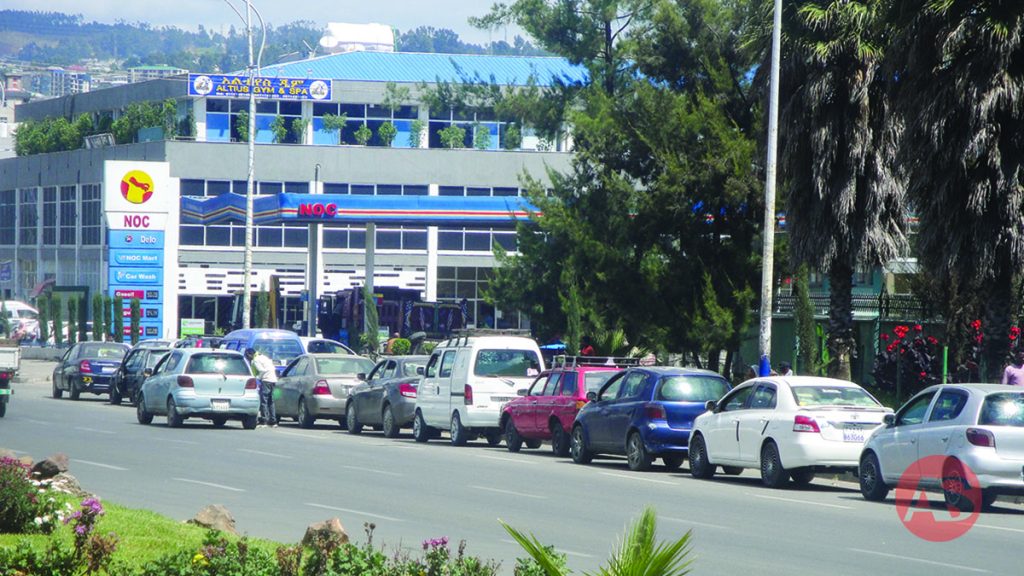Vehicles lining up to refuel at a gas station in Addis Abeba (Photo: Addis Standard)
Addis Abeba – For the first time in Ethiopia’s history, the price of a liter of fuel has exceeded the 100-birr mark following the government’s latest adjustment to the retail price of petroleum products.
Effective from 07 January, 2025, at 6 p.m., the price of a liter of gasoil has risen to 101.47 birr, reflecting an increase of 11.5%.
The Ministry of Trade and Regional Integration also announced that the price of a liter of diesel and kerosene has increased by 10%, now set at 98.98 birr.
According to the Ministry, the decision to raise petroleum prices was made under the authority granted by the Council of Ministers, which permits monthly reviews and adjustments to the retail prices of petroleum products.
The latest increase in fuel prices comes three months after the government implemented an adjustment that raised retail fuel prices by up to eight birr per liter.
On 07 October, 2024, the government increased the price of gasoline to 91 birr per liter, while the prices of diesel and kerosene rose to 90 birr per liter.
Taking the two consecutive price adjustments into account, the price of gasoil has surged by nearly 19 birr per liter, equivalent to a 22.8% increase, while the prices of diesel and kerosene have risen by 18%, reflecting an increase of more than 15 birr over the past three months.
In a press briefing held three months ago, Ahmed Tussa, an advisor to the Minister of Trade and Regional Integration, outlined the government’s reasoning for the price hike.
He attributed the decision to two main factors: the volatility of global fuel prices and the recent macroeconomic reforms, which have led to an appreciation of the foreign exchange rate.
Ahmed further explained that, given the current exchange rate, the cost of importing and transporting fuel to the Ethiopian market could push prices to as high as 120 birr per liter.
Residents of Addis Abeba have reported experiencing financial strain following the fuel price adjustment in October 2024 and the subsequent increase in public transportation fares, which resulted in the minimum fare for short-distance taxi rides doubling to 10 birr (Photo: Addis Standard)
A macroeconomist, speaking to Addis Standard three months ago regarding the fuel price adjustment, expressed concern about the price hike, cautioning that it could exacerbate the already high inflation rate.
“Historically, increases in fuel prices have been closely linked to inflation,” he noted. “Recent price adjustments have also had an inflationary effect.”
The macroeconomist emphasized the central role of fuel in the economy, highlighting its significant impact on the prices of other commodities. “The ripple effect on other goods could further intensify the already severe cost of living,” he warned.
Recently, Addis Standard reported on the financial strain experienced by low- and fixed-income households following the October fuel price adjustment and the subsequent increase in public transportation fares, which saw the minimum fare for short-distance taxi rides double to 10 birr.
The article emphasized that the rise in transportation costs has severely affected a large portion of the population, particularly low-income earners, who are struggling to afford their daily commutes. It also highlighted how escalating prices, exacerbated by inflationary pressures, continue to strain household budgets across Addis Abeba. AS





